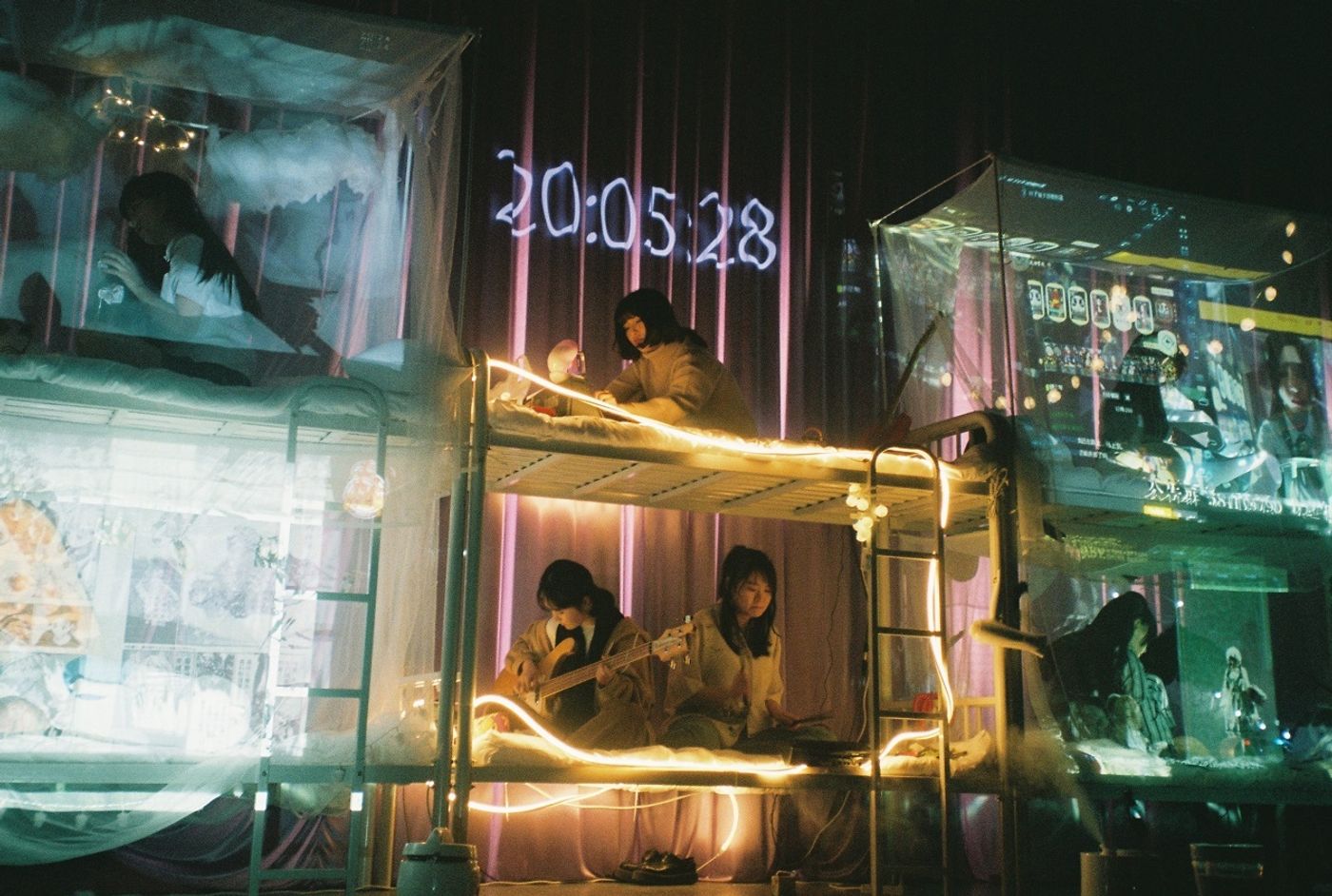Review: HERE IS THE MESSAGE YOU ASKED FOR...DON'T TELL ANYONE ELSE ;-): OZASIA FESTIVAL 2018 at Space Theatre, Adelaide Festival Centre
 Reviewed by Corinna Di Niro, Thursday 1st November 2018.
Reviewed by Corinna Di Niro, Thursday 1st November 2018.
If daring, different, loud, and interactive is what you're after, then director Sun Xiaoxing has provided all that and more in Here is the Message You Asked For... Don't Tell Anyone Else ;-).
Here is the message you asked for... takes its name from 'Melissa', the computer virus. It appears like a playful message at first, but ii is quite harmful. The performance is mostly improvised and sheds light on issues facing the younger generations in China. There is no text-based narrative, and no surtitles, as nothing intelligible is being spoken. It is a work depicting a dangerous phenomenon in China and around the world.
At first glance, it has all the trimmings of a traditional theatre show. The stage is wrapped in a light purple curtain, the stage lights are lit, and there is lovely gentle music being played. As you enter, however, guests are invited to download an 'app', WeChat, to interact with the performers during the show, and early arrivals are requested to sit on the stage or in the empty bunkbeds also on the stage. The remaining theatregoers take their seats and busily try to access the app, only to be found that there is a limited capacity and some audience members have to miss out. For those with the app, there is giggling and laughter, and for those without, they look around the room with curiosity and confusion.
On the stage, we see seven young women in bunk beds, some holding selfie sticks, some on webcam, and others playing music, who provide the live music to the show. The four main actresses seem caught in the virtual world, detached from reality and consumed by their obsession of being watched 24/7. We, as the voyeurs, play right into the hands of Xiaoxing's aim of shocking us into the distortion of China's younger generation living in two dimensions. We watch with intrigue, we chat and interact, and we amuse ourselves with these millennials live streaming even the most mundane aspects of their lives. This is what transpired for the first 40 minutes of the show. As someone not interested in watching amateurs live stream, it was difficult to digest but, for those younger, and perhaps more familiar, there was lots of laughter and banter as the interaction between the cast and audience continued throughout the whole show.
The beds take on the role of the virtual world. Here, the young women seem to be most relaxed. It is only when they venture out of their 'bedrooms' and try to connect with the real audience is there a sense of unease, the idea being that human interaction of a digital kind is fast becoming the preferred reality.
The live music is made from synthesisers, electric drums, bass, and guitar. It is loud, hypnotic, and takes a post-rock focus. The display of live-streaming is projected onto four beds, and covers everything from cosplay, junk food, and anime, to live dance shows. There is a lot to see and hear, so much that it almost becomes an unbearable information overload.
To end the performance, the four actresses stood behind the audience and threw fluffy toys to us. Why? Who knows, but we became so interested by this odd behaviour that it was not until we heard a voiceover informing us that the show had ended that we realised how entrapped we had become. Xianoxing's mission was achieved.
This is a telling portrayal of the effects of cyber reality.
Reader Reviews
Videos

